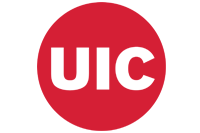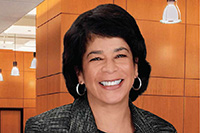The Fair Housing Legal Support Center & Clinic is expanding its work in predatory lending and fair housing education using grants from the U.S. Department of Housing and Urban Development (HUD), and the City of Chicago.
Using a $324,966 HUD grant, the staff is able to continue educating students on predatory lending issues, and is undertaking research on the ongoing predatory lending trends in the Chicago area.
The law school’s Fair Lending/Home Preservation Program includes a Predatory Lending course giving students a review of the mortgage lending crisis through information from private attorneys, the Illinois Attorney General’s Office and Circuit Court of Cook County judges dealing with mortgage foreclosures.
Students also intern four hours each week at a number of government offices and non-profits researching or working on problems the agencies are attempting to rectify. The internships provide students hands-on training allowing them to apply what they’ve learned through the weekly predatory lending classes.
The second HUD-financed initiative is funding a year-long investigation into fair lending practices in the Chicagoland area. The project is coordinated by Adjunct Professor Edward Voci.
“While the financial crisis was recognized nationally in 2008, we have been monitoring and investigating lending practices for more than a decade,” said Professor Michael Seng, co-executive director of the Center. “We want to believe the incidences of predatory lending are currently dropping due to mandated federal government changes of criteria used to issue mortgages and how mortgages are written.”
“This study will allow us to develop the research tools and take the time to determine if the protections are working for residents,” Seng added.
Voci will work through agencies to learn what is happening with lending practices. Should the research team uncover questionable loans or practices, Voci will determine the proper legal actions for resolution of problems.
The research team will also look into problems stemming from reverse mortgages–federally-secured home loans that allow homeowners to take the equity out of their homes for personal use. Recent federal changes stipulated how the reverse mortgage loans can be written and financed.
“The HUD grant gives us the flexibility to go into the community and see what’s going on for both predatory lending and reverse mortgage issues,” Seng added.
A second grant for $28,825 from the City of Chicago’s Department of Planning and Development is supporting the 2014 monitoring, reporting and when necessary taking action against those using predatory lending tactics in the city. John Marshall students will give assistance where needed, as well as develop and deliver consumer education and training programs on predatory lending.
The grant enables John Marshall’s Fair Housing Legal Support Center to foster community work with neighborhood organizations, counseling agencies, aldermanic staff and others who have been hearing from constituents about problems with mortgage lending.
The Fair Housing Legal Support Center also received a $99,865 grant from HUD to continue its college students training program that is helping raise awareness of fair housing issues. The Fair Housing Internship Program is training 14 college students from 10 colleges and universities. This is the fourth semester the program is being offered. Seng says the grant allows the Center to branch out into a new demographic and makes young people aware of the importance of fair housing and fair lending obligations.
(The work that provided the basis for this publication was supported by funding under a grant with the U.S. Department of Housing and Urban Development. The substance and findings of the work are dedicated to the public. The author and publisher are solely responsible for the accuracy of the statements and interpretations contained in this publication. Such interpretations do not necessarily reflect the views of the Federal Government.)


